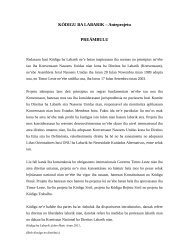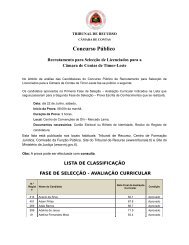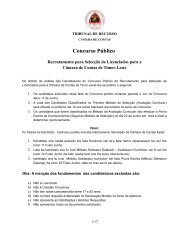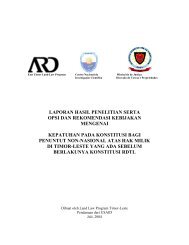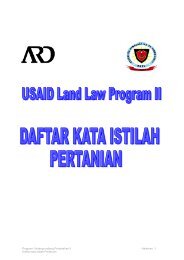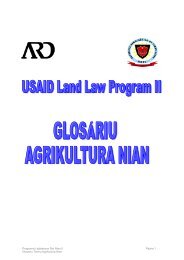English
English
English
You also want an ePaper? Increase the reach of your titles
YUMPU automatically turns print PDFs into web optimized ePapers that Google loves.
generally inclined to respect the choices made by the legislature or executive as to where the public<br />
interest lies.<br />
Article 14 (3) of the German Constitution provides that “expropriation shall only be permissible in the<br />
public interest.” The public interest requirement has been interpreted to mean that expropriations cannot<br />
be undertaken solely for the benefit of the state’s commercial interests or those of a private person. It is<br />
possible, however, for a private person to benefit from an expropriation as long as the expropriation is<br />
undertaken in the execution of a public necessity. Expropriations for the purpose of land reform have also<br />
entered into case law in Australia, the Council of Europe and the United States. Those decisions are<br />
summarized as follows: “Generally, the position is that a broad, general program of land reform can be in<br />
the public interest and that individual expropriations would be for a legitimate purpose if they form part<br />
of such a program, even though the intention is to give or transfer the expropriated land, in terms of that<br />
program, to a private person.” (Treeger 2004)<br />
To dispel any lingering doubts in this regard, Article 25 (4) of the South African Constitution stipulates<br />
that the term “public interest” must be interpreted so as to include “the nation’s commitment to land<br />
reform” and “reforms to bring about equitable access to all of South Africa’s natural resources.” Any<br />
property redistribution program thus clearly falls within the ambit of the public interest. Article 25 (1) of<br />
the South African Constitution, however, requires that deprivation may only take place in terms of a law<br />
of general application and further provides that “no law may permit arbitrary deprivation of property.”<br />
This means that the government should exercise its powers in terms of clear rules and principles set out in<br />
advance. The exercise of power is defined as arbitrary where it does not follow rules or precedents. Even<br />
if authorized by a law of general application, a deprivation will be unlawful if its effect is to allow for<br />
“arbitrary” expropriation of property. Arbitrary action has been described in South African administrative<br />
law as action that is “capricious or proceeding merely from the will and not based on reason or principle.”<br />
4 NON-CUSTOMARY PRIMARY INDUSTRY LAND SURVEY



